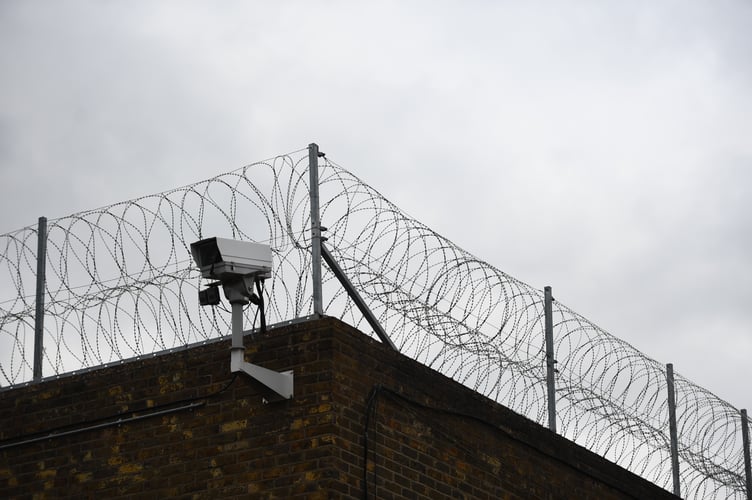A quarter of adults convicted of a crime in 2023 in Torridge have now been convicted for further offences, latest figures show.
Catch22, a not-for-profit company that works with prison leavers, said reoffending is being driven by a lack of support for those convicted of crimes, and called for a "shift from punishment to rehabilitation".
New figures from the Ministry of Justice show 52 of the 216 adults convicted of a crime in 2023 in Torridge have gone on to reoffend, giving a reoffending rate of 24.1%.
This was higher than the 21.7% rate a year earlier, but slightly lower than the 25.4% rate ten years ago.
It was also lower than the 27.4% rate across England and Wales as a whole.
Across the two nations, reoffending was up from 25.7% for those first convicted in 2022, but down on the 30.2% in 2013, the highest level since current records began.
Matt Randle, Catch22's director of justice, said: "Reoffending rates remain stubbornly high, reflecting not just the limitations of the criminal justice system, but also the wider decline in socio-economic stability – from a lack of affordable housing and access to mental health support, to the erosion of local services.
"These pressures deepen the very conditions that drive offending in the first place."
He also said he welcomed the Government's upcoming Sentencing Bill, which will advocate for the increased use of tough community sentences, rather than short prison sentences of under 12 months.
However, he added: "To truly reduce reoffending, we must shift the focus from punishment to rehabilitation; using people’s time in custody and on probation to address the root causes of offending and build long-term stability.
"Meaningful rehabilitation is not only about helping individuals rebuild their lives; it prevents future victims and strengthens communities."
In total, 219 reoffences were committed by the 2023 offender cohort in Torridge, giving an average of 4.2 reoffences per offender.
A year earlier there were 197, an average of 4.1.
Helen Dyson, interim chief executive at social justice charity Nacro, said it was "no surprise" reoffending was rising.
"Overcrowded prisons, stretched probation teams, and people left in cells for up to 22 hours a day with little access to support, education or training are leaving people worse off than when they went in," she added.
"HMI Prisons rated just 19% of prisons 'good' for rehabilitation. With reoffending at 61% for short sentences and 73% for those released homeless, we are setting people up to fail.
"Reoffending costs £23 billion a year, and it costs £53,000 to keep someone in prison. That money must be used more effectively—on housing, mental health, and education – to help people break the cycle and rebuild their lives."
A MoJ spokesperson said the 2023 offender cohort was affected by the long recovery of the courts system after the Covid pandemic, as well as strikes at the Criminal Bar.
They added: "Most offending is reoffending, and the latest statistics show adults released from custodial sentences of less than 12 months had a proven reoffending rate of 61.2%, whilst those with sentences of 12 months or more reoffended at a substantially lower rate, at 22%.
"That’s why we are reforming sentencing to ensure our prisons cut crime, and boosting rehabilitation efforts especially in the community to drive down reoffending rates.
"We’re also building 14,000 new, modern prison places by 2031, and are turbo-charging probation recruitment with 1,000 already through the door with another 1,300 to follow this year."




